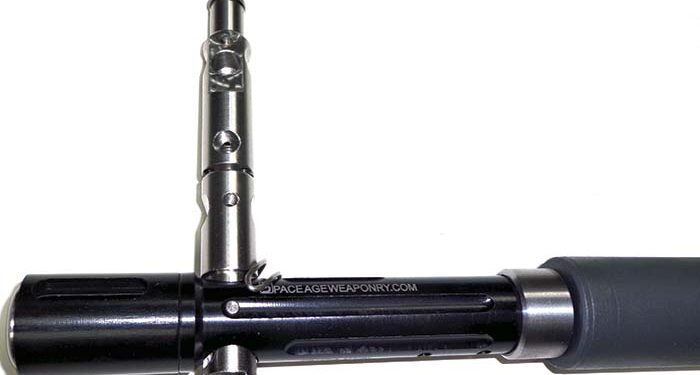By Christopher R. Bartocci
Throughout the industry there are numerous combination tools for the AR-15/M16-series rifle. Most of them are not what you would consider to be armorer combination tools. They are mostly combination tools for cleaning such as the eFECT maintenance tool, Multi Tasker and the Samson Field Survivor to just name a few. These will often contain sight adjustment tools, firing pin retainer pin removal tool, carbon cleaning tools, punch, scraper and screw driver for optics. Some also will come with a broken shell extractor as well as cleaning brushes and or cables. None of these were intended for repair but just field cleaning.
At the 2013 SHOT Show a new and unique tool was debuted by designer John Horne of Space Age Weaponry out of Los Alamos, New Mexico. He showed his D-CAT or Deployable Compact Armorers Tool. So what makes the D-CAT different from the ones previously mentioned? This is a complete field armorer tool that is capable of repairing anything on the rifle that does not require a vise and even some things that do if you have someone help and hold onto the rifle. The tool’s main component is manufactured from 303 stainless steel and the torque handle is manufactured from 6061 T6 aluminum. The bits and punches are manufactured from H13 tool steel.
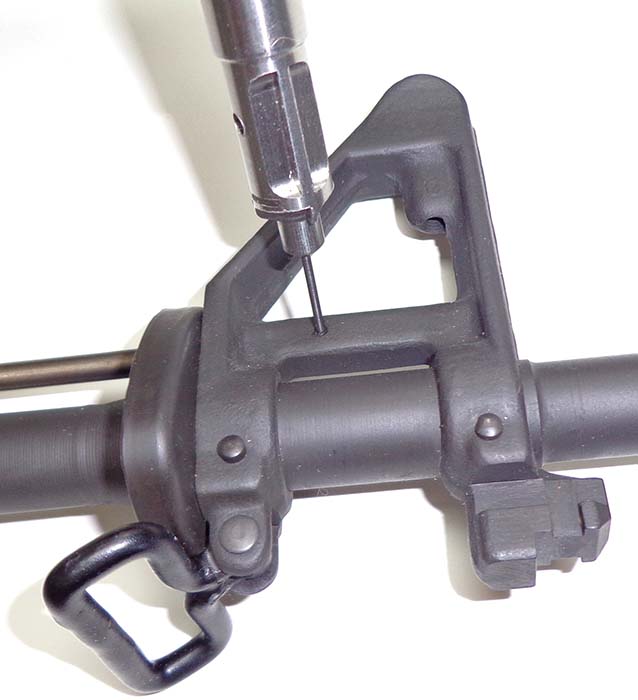
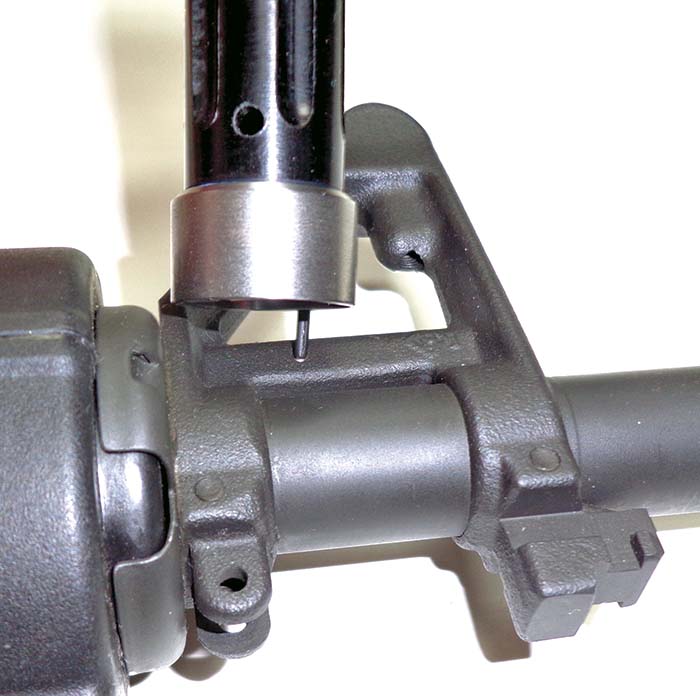
Beginning with the torque handle, there are several capabilities. In the rear of the handle is a bit storage magazine with a rotary retention gate for 4 hex bits (flat, 9/64, 1/8, front sight tool) and a 1/8 inch punch. The opposite end has two roll pin starters and a rifle receiver extension wrench. There are two extra compartments, one of which can hold items such as hammer/trigger pins and the other can hold an additional 1/8” punch. The main body has holes to accept the tool for use as a handle in its various configurations.
The tool has multiple capabilities. These include a hex driver, magazine lip gauge, rear sight tool (A1 field sight), hammer/trigger pin punch, optics screw driver, bolt carrier carbon scraper, receiver pin driver, punch holder, magazine lip adjustment, cleaning rod attachment and gas tube wrench. Stored on the inside of the hex driver body of the tool is a roll pin starter, 0.093 and 0.0625 punches. The retainer pin, which holds the torque handle and tool together, is also used as a receiver pivot pin installation tool. Also with the tool comes a rubber cover that also serves as a muzzle cap that can be safely shot through.
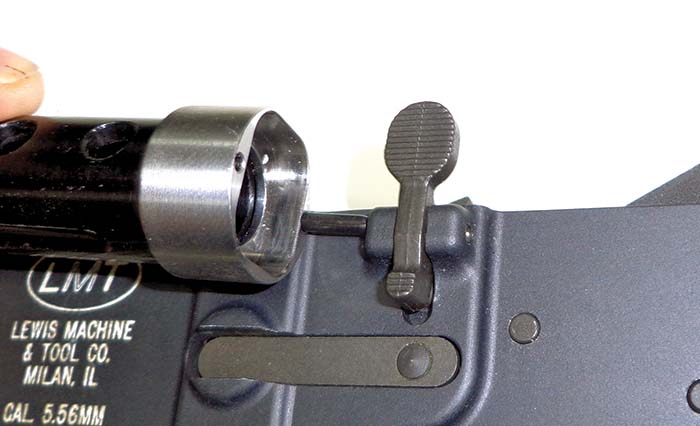
In looking at the capabilities of the tool we will start with the two main configurations. The torque handle serves as the host for the inner tool sub-assembly. The rear of the torque handle has an impact area for use with a hammer or rock (i.e. field expedient hammer). The opposite end has multi purposes. First it is a wrench for an M16-series rifle receiver extension. By placing the inner tool transverse in the rear of the torque handle, it is used for a T-handle to rotate and tighten the receiver extension. Next there are two roll pin starters. One is for the 3/32” bolt catch roll pin/extractor pin and the other is for the 5/64” roll pin and forward assist roll pin. The 1/16” pin punch can be used to install and remove the rear sight roll pin, ejector pin and gas tube roll pin installation/removal.
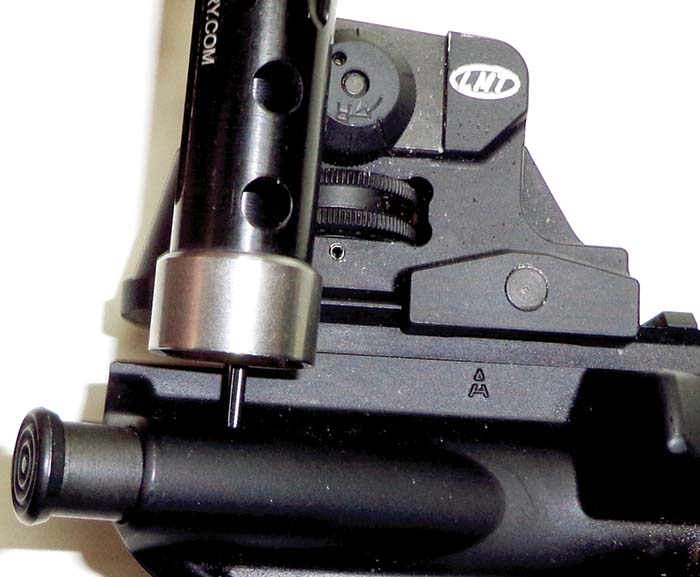
Depending on which way the tool is inserted into the torque handle there is either a punch end or a hex bit end. The punch end is magnetized to retain the various punches and the hex ends uses a spring retainer to hold the bits in place. The end of the punch end also serves as a bolt carrier scraper. This is designed to remove built up carbon from the back of the bolt carrier. The inside of the hex driver body near the threads houses six compartments that hold up to six pin punches or a combination of punches and smaller springs and detents such as the receiver detent and detent springs. When using the pin punches, by placing the 1/8” punch in the tool, the tool can be used for removal/installation of the trigger guard pin. When inserting the flat blade screwdriver end, the tool can be used for installation and removal of the pistol grip screw as well as the tightening and removal of the buttstock screw at the end of the buttplate. A 3/16 hex driver is also included for weapons that have a socket head cap screw to retain the pistol grip instead of the conventional straight blade fillister head. The flat screwdriver may also be used for field staking of the carrier key screws. The front sight adjustment tool can be used for removal of the firing pin retainer pin as well as a sight adjustment. The 1/8” hex bit can also be used for the lifting and removal of the magazine floorplate. The tool is held by the torque handle. At the end of the tool there is a slit used for bending magazine feed lips.

The spring clip assembly is a dual purpose assembly. When the spring is attached, it is used to secure the torque handle to the tool. When removed it serves as a front pivot pin installation tool. The spring is removed from the pin. The large end of the pin is slid into the gateway in the lower receiver until the hole on the end lines up with the hole in the receiver. The spring and detent are inserted into the face of the pin. With the 0.093” punch push inward on the detent/spring and rotate the pivot pin tool. Remove the punch. Now slide the pivot pin in from the left side and rotate until the detent engages the track on the pivot pin.
Separating the two sides of the inner sub-assembly reveals additional capabilities. The punch side on the opposite side provides both a takedown/pivot pin punch as well as a hammer/trigger pin punch as well as an alignment punch for the same. On the side of the tool is a large optic screw driver. This can be used for the locking nuts on a detachable carrying handle or any optic that uses the same interface.
The hex bit end also has multiple uses. With the installation of the front sight adjustment bit, the front sight post can be adjusted or removed. The flat portion of the end of the hex bit end has a A1 Field sight adjustment tool. This makes easy adjustment of the sights without the use of a cartridge tip. The 9/64 and 1/8 hex bits are used also for removal and installation of the carrier key screws. If the carrier key screws are staked in place they may need to be too difficult to remove or may even well need to be ground. The very end of the hex bit end is also used for a magazine lip gauge; the bullet tip should align on the retention spring.
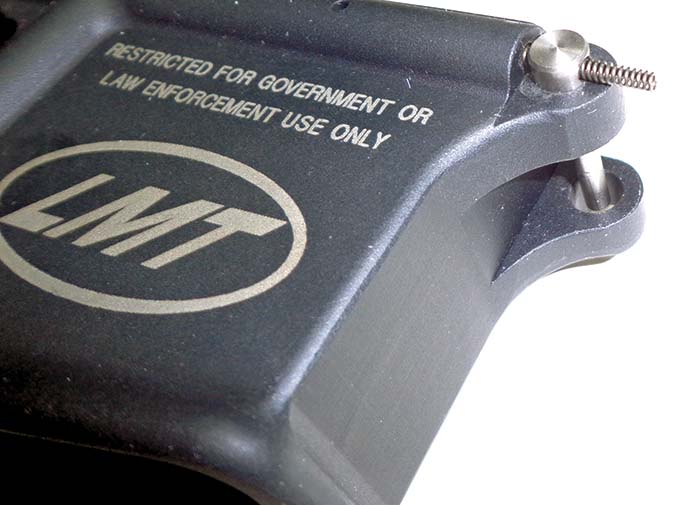
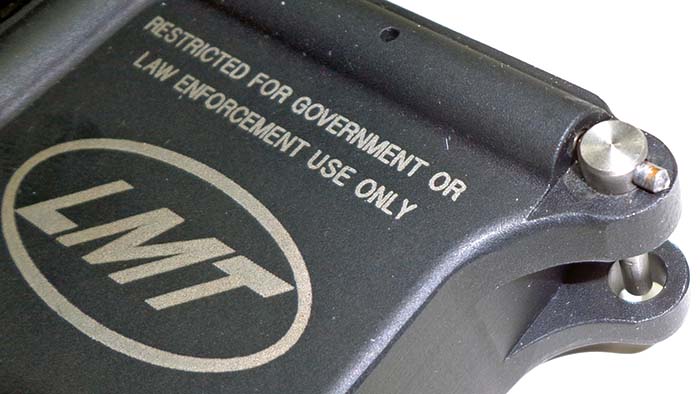
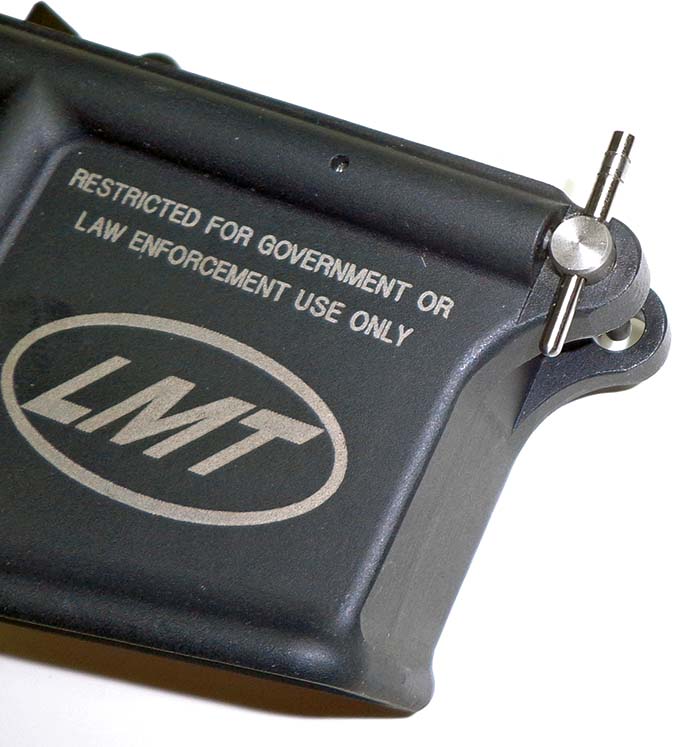
With the tool assembled it acts as a gas tube removal tool. The pin punch end has a groove cut into the tool which matches the gas tube. On the other end a rotating jaw is installed that mates with the other side of the gas tube. The hex end is tightened which closes the gas tube tool on the gas tube making for easy removal of the carbon froze gas tube.
Currently the tool is focused on the AR-15/M16 market at large. This includes military, law enforcement as well as commercial. Tools have made it out to several military units as well as the law enforcement community. John Horne is a police officer and has got them to several in the law enforcement community. The Los Angeles Police Department has purchased some of the tools. The biggest challenge facing Space Age Weaponry and the D-CAT is getting a good size inventory before the big push begins for sales. The D-CAT is U.S. Patent pending and awaiting an ITAR ruling. Once that is dealt with the D-CAT will see international marketing.
The D-CAT is unique to the industry. Based on this author’s research there is nothing like it on the market today. The D-CAT is a new product with only a few hundred units in circulation. However, with a new manufacturing partner and more exposure to the industry the D-CAT has a place in any military or law enforcement armorers tool box. The merits of this tool would be invaluable to an armorer in the field in an military unit. This small compact tool can fix most any issue that may come up in the field without having to lug around a heavy armorer kit. Many malfunctions and small part replacements could not be done in the field due to the inability to carry a big kit where the D-CAT could be used to conduct most any needed field repair. The tool is currently available direct from Space Age Weaponry at www.spaceageweaponry.com and through Brownells. This tool has an excellent future with all walks of the industry.
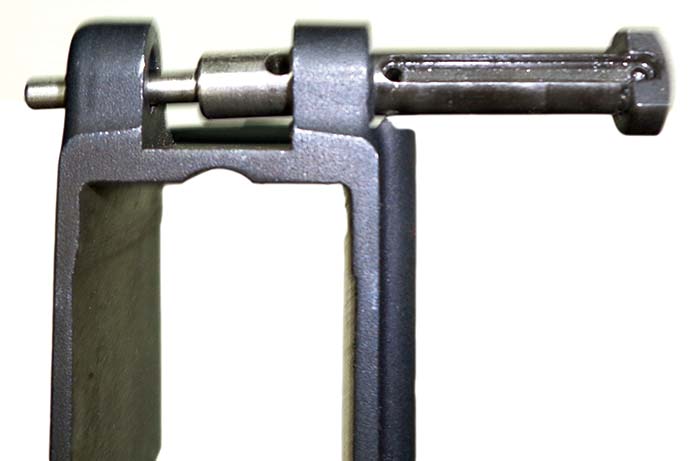
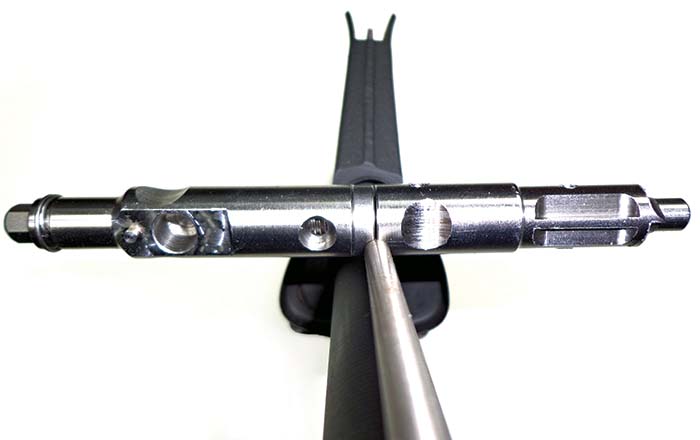
| This article first appeared in Small Arms Review V18N4 (August 2014) |



